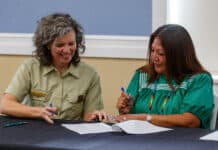
The primary election is Tuesday, Aug. 30. Until 2014, Sedona City Council elections would kick off in March and conclude in May. The council election was also divorced from other ballots, meaning Sedona voters had one campaign on which to decide.
Two years ago, thanks to changes implemented by Arizona state legislators, all general elections moved to November, meaning local elections are on the same ballot as national races. Primary elections moved to August and because municipal council elections are nonpartisan, the Aug. 30 vote is the one that decides city and town elections with the November ballot reserved for runoffs, if applicable.
Many voters, especially younger ones, assume their individual votes do not matter. Part of that stems from the somewhat screwy winner-take-all Electoral College to choose the United States president, which allowed Rutherford B. Hayes, Benjamin Harrison and George W. Bush to win the White House while losing the national popular vote. All other elections are determined by popular vote, making all votes important.
Individual votes matter most importantly in small, local elections. State propositions are often won by a handful of votes. Proposition 203, Arizona’s medical marijuana law, for instance, initially appeared to have failed in 2010, but as late and provisional ballots were counted, won by 4,340 votes.
In 2008, two candidates for Sedona mayor were separated by less than 10 votes, which spread a little wider on a recount. Had a dozen more people cast ballots, the election and the following years of governance could be been completely different — who knows how much those few votes could have changed our city?
This year, the Sedona City Council could see a major change to its makeup. There are six candidates running for four seats on council.
For the three four-year seats, two are incumbents and two are challengers while the single two-year seat has one incumbent and one challenger.
Your votes in the primary election matter. Due to the field, not all of the council candidates will survive the primary. Voters can choose up to three candidates in the council race, so if 3,000 citizens vote, there are potentially 9,000 votes that could be cast. If 400 people only vote for two candidates, there would be theoretically 8,600 votes cast. According to the state’s formula, those 8,600 votes would be divided by the number of seats — by three for a max of 2,833⅔ — then cut in half — 1,416⅓ for 50 percent — and rounded up to the nearest whole number, 1,417, marking the theoretical threshold candidates need to win the primary outright.
If candidates fail to reach that threshold and seats remain open, candidates will head to the runoff in the general election.
If there is a runoff, we will cover that race leading up to the vote on Tuesday, Nov. 8.


















